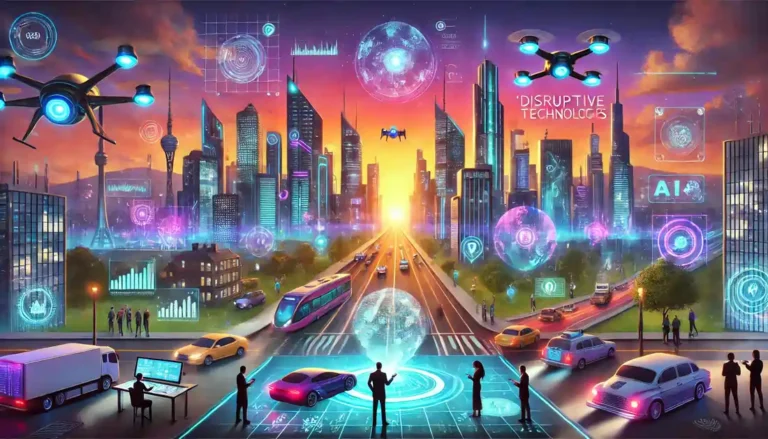Busbis 1660 has emerged as a pioneering force in disruptive technologies, reshaping industries and redefining possibilities. This term encapsulates groundbreaking innovations that challenge the status quo and foster unprecedented advancements in various sectors. Busbis 1660 technologies are driving significant changes from artificial intelligence to renewable energy.
Table of Contents
What Makes Busbis 1660 Disruptive Technologies?
Disruptive technologies under Busbis 1660 stand out for their ability to displace traditional methods, offering superior efficiency, affordability, or accessibility. Their impact spans industries, enabling businesses to transform operations and consumers to experience improved solutions.
Applications in Artificial Intelligence
Artificial Intelligence (AI) remains a cornerstone of Busbis 1660 technologies. AI-powered tools, such as machine learning algorithms and natural language processing, are revolutionizing data analysis, customer service, and product development. These technologies enable businesses to gain deeper insights and improve decision-making.
Impact on Renewable Energy Solutions
Busbis 1660 is advancing renewable energy technologies, paving the way for a more sustainable future. Solar panels with higher efficiency rates and innovative wind turbine designs are reducing energy costs while combating climate change. These solutions are instrumental in transitioning to a low-carbon economy.
Transforming Healthcare with Innovations
The healthcare sector is witnessing a dramatic transformation with Busbis 1660 technologies. Innovations like wearable health monitors, telemedicine platforms, and AI-driven diagnostics improve patient outcomes while reducing healthcare costs. These advancements make healthcare more accessible to underserved populations.
Revolutionizing Transportation Systems
Thanks to Busbis 1660 innovations, transportation is undergoing a massive overhaul. Autonomous vehicles, smart traffic management systems, and electric mobility solutions create safer and more efficient travel methods. These technologies address congestion, reduce emissions, and enhance urban living.
Shaping the Future of Education
Busbis 1660 technologies are redefined education through e-learning platforms, virtual reality, and personalized learning systems. These tools make education accessible globally, allowing students to learn independently while benefiting from interactive and engaging content.
Improving Communication Channels
Communication has reached new heights with the integration of Busbis 1660 technologies. Advanced telecommunication networks like 5G and real-time language translation apps connect people and businesses worldwide, fostering a more interconnected world.
Reshaping Retail with Technology
Retail is evolving with the adoption of Busbis 1660 solutions, such as augmented reality shopping experiences, AI-driven inventory management, and automated checkout systems. These technologies enhance customer experiences while streamlining backend operations.
Disruptive Trends in Manufacturing
With Busbis 1660 innovations like robotics, IoT-enabled devices, and 3D printing, manufacturing processes are becoming smarter and more efficient. These technologies increase production speed, minimize waste, and reduce operational costs.
Enhanced Security Systems
Security is a priority in today’s digital age, and Busbis 1660 technologies are addressing this with cutting-edge solutions. Biometric authentication, AI-powered surveillance, and blockchain technologies protect personal and organizational data.
The Role of Blockchain in Disruption
Blockchain technology, a significant component of Busbis 1660, ensures transparency and security in various applications such as supply chain management, financial transactions, and digital identities. Its decentralized nature eliminates intermediaries, enhancing efficiency.
Empowering Small Businesses
Busbis 1660 technologies are leveling the playing field for small businesses by providing affordable tools for digital marketing, inventory management, and customer relationship management. These innovations enable small enterprises to compete with larger corporations.
Challenges in Adopting Busbis 1660 Technologies
Despite their benefits, these technologies face challenges, including high implementation costs, resistance to change, and regulatory hurdles. Businesses must address these barriers to fully leverage the potential of Busbis 1660 innovations.
Future Prospects of Busbis 1660 Technologies
The future of Busbis 1660 technologies is promising, with continuous advancements expected in AI, renewable energy, and automation. As adoption grows, these technologies will further reshape industries and drive global progress.
Conclusion
Busbis 1660 technologies are not just innovations but transformative forces reshaping how we live, work and interact. From revolutionizing healthcare to redefining education, their impact is profound and far-reaching. As we embrace these advancements, the possibilities for a better future are limitless.
FAQs
Q1: What are Busbis 1660 technologies?
Busbis 1660 refers to a collection of disruptive technologies transforming industries through innovation and efficiency.
Q2: How does Busbis 1660 impact small businesses?
These technologies provide small businesses with affordable tools and platforms to enhance productivity, customer engagement, and competitiveness.
Q3: What are the challenges in adopting Busbis 1660 technologies?
Challenges include high costs, regulatory issues, and organizational resistance to change.
Q4: Which industries benefit the most from Busbis 1660 technologies?
Industries such as healthcare, education, transportation, and manufacturing see the most significant impact.
Q5: What is the future of Busbis 1660 technologies?
The future includes advancements in AI, renewable energy, and automation, with widespread adoption expected across all sectors.


